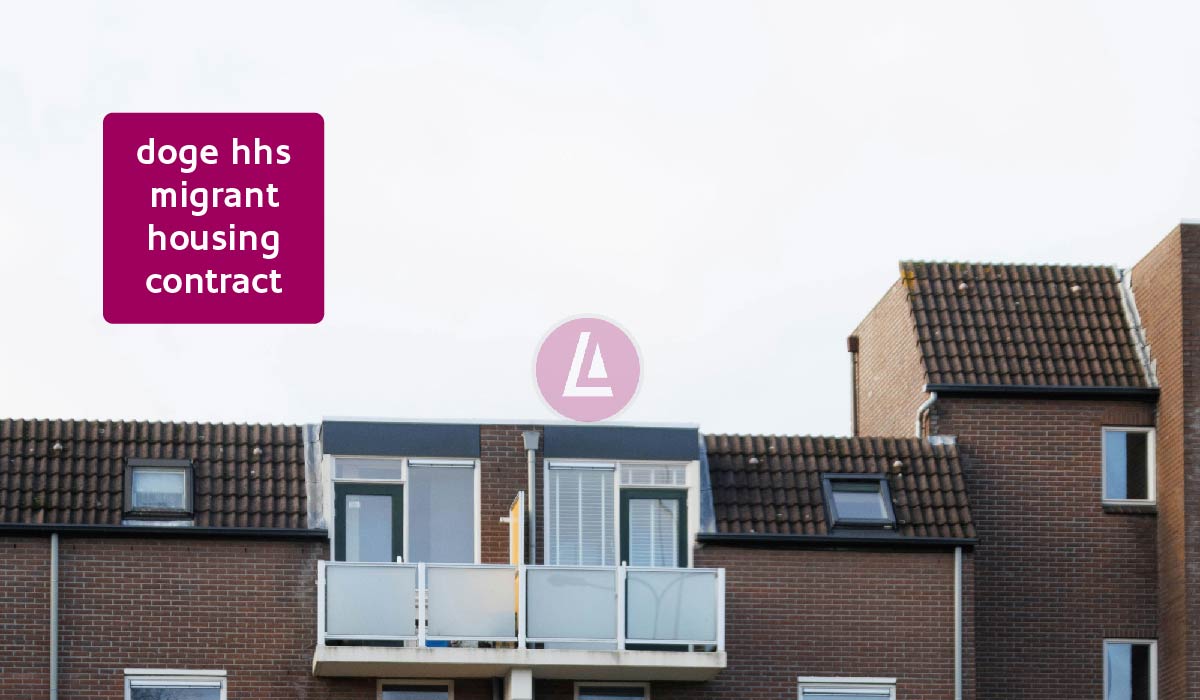In recent years, the United States has seen a significant increase in the number of migrant children and families arriving at the border, prompting a greater need for temporary housing and care. As a result, the Department of Health and Human Services (HHS) has worked to secure various contracts to manage this influx. One such deal that has recently caught attention is the DOGE HHS migrant housing contract—a partnership involving a company known as DOGE (not to be confused with the cryptocurrency) and HHS for providing housing and support for migrants.
But what exactly is this contract, who is involved, and why is it sparking conversation? Let’s break it down.
What Is the DOGE HHS Migrant Housing Contract?
The DOGE HHS migrant housing contract refers to a government agreement between the Department of Health and Human Services and a private company called DOGE, tasked with building, maintaining, and managing temporary housing facilities for migrant individuals—primarily unaccompanied minors.
This contract is part of a broader effort by HHS’s Office of Refugee Resettlement (ORR), which is responsible for the care of these minors until they can be placed with a sponsor or reunited with family. DOGE, in this context, acts as a logistics and operations provider, helping ensure that migrants are housed in safe, sanitary, and secure facilities.
Why Is This Contract Important?
The DOGE HHS migrant housing contract is significant for a few reasons:
-
Urgency of Need: The growing number of migrants at the border has placed intense pressure on existing infrastructure. HHS needed private partners who could quickly mobilize resources.
-
Large Financial Scale: Like many government contracts, this one involves substantial sums of taxpayer money. Understanding how and where this money is spent is important for transparency.
-
Humanitarian Responsibility: Housing unaccompanied minors and migrant families comes with a moral and legal responsibility to ensure humane treatment. Contractors like DOGE must meet strict standards of care.
Who Is DOGE?
The exact details about the company named DOGE involved in the contract may not be widely publicized, especially due to its potential confusion with the term “Doge” popularized by internet memes and cryptocurrency. However, in this context, DOGE refers to a government contractor with capabilities in logistics, housing construction, and facility management.
Companies like DOGE are typically vetted by the federal government to ensure they meet the necessary qualifications, including security clearances, staff expertise, and prior performance on federal contracts.
What Services Does the Contract Cover?
The DOGE HHS migrant housing contract is likely to include several key components:
-
Facility Construction and Setup: DOGE is responsible for preparing the housing structures, whether they are temporary shelters, converted warehouses, or modular units.
-
Daily Operations: This includes providing food, clothing, medical services, and security.
-
Compliance and Reporting: The contractor must adhere to federal regulations and report regularly on housing conditions, incidents, and overall care.
-
Support Services: Psychological counseling, language support, and education for minors are typically part of the housing program.
Transparency and Public Scrutiny
Because of its sensitive nature, the DOGE HHS migrant housing contract has come under public and media scrutiny. People want to know:
-
Is the company qualified to manage vulnerable populations?
-
Are the housing conditions humane and safe?
-
Is the contract fairly awarded and monitored?
Transparency in government spending is always a concern, and the public deserves access to oversight reports, independent audits, and performance reviews.
Controversies and Challenges
While the goal of migrant housing contracts is to provide safety and care, there have been past issues with other contractors that raise concerns:
-
Overcrowding: Facilities can quickly exceed capacity during migrant surges.
-
Staff Misconduct: Ensuring proper training and background checks for staff is essential.
-
Financial Mismanagement: Some contracts in the past have faced criticism over cost overruns and inefficient spending.
The DOGE HHS migrant housing contract will need to avoid these pitfalls to maintain credibility and ensure humane treatment of migrants.
What This Means for the Future
As migration patterns continue to fluctuate due to global instability, economic hardship, and political crises, contracts like the DOGE HHS migrant housing contract will become more commonplace. It highlights the government’s reliance on private partners for rapid response and infrastructure support.
More importantly, it shows the need for:
-
Robust Oversight from agencies and watchdog organizations
-
Public Accountability through transparent reporting
-
Long-Term Solutions such as reforming immigration policy and improving international aid to reduce migration pressures at the source
Conclusion: A Human-Centered Approach Is Key
The DOGE HHS migrant housing contract is more than just a business deal—it’s a reflection of how the U.S. handles one of the most pressing humanitarian issues of our time. While the logistics, funding, and policy mechanics are important, the central focus should always remain on the people involved—especially the children who have arrived alone, fleeing danger, and seeking safety.
As this contract unfolds, it will be essential for all stakeholders—government, contractors, and citizens—to demand excellence, compassion, and accountability.

